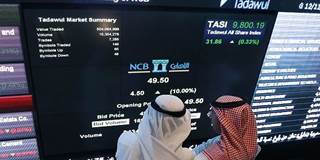Leveraging Islamic Finance for Sustainable Development
The Middle East’s oil wealth has failed to be translated into broad-based economic development. But the capital that has accumulated in the region’s financial systems could yet play an important role in developing the Muslim world – if Islamic finance is used to its full potential.
WASHINGTON, DC – Roughly one-third of those suffering from extreme poverty worldwide live in member states of the Organization of Islamic Cooperation (OIC). In 21 of those 57 countries, fewer than half of the population has access to adequate sanitation. Four percent of infants born in these countries die before they reach the age of five.



WASHINGTON, DC – Roughly one-third of those suffering from extreme poverty worldwide live in member states of the Organization of Islamic Cooperation (OIC). In 21 of those 57 countries, fewer than half of the population has access to adequate sanitation. Four percent of infants born in these countries die before they reach the age of five.